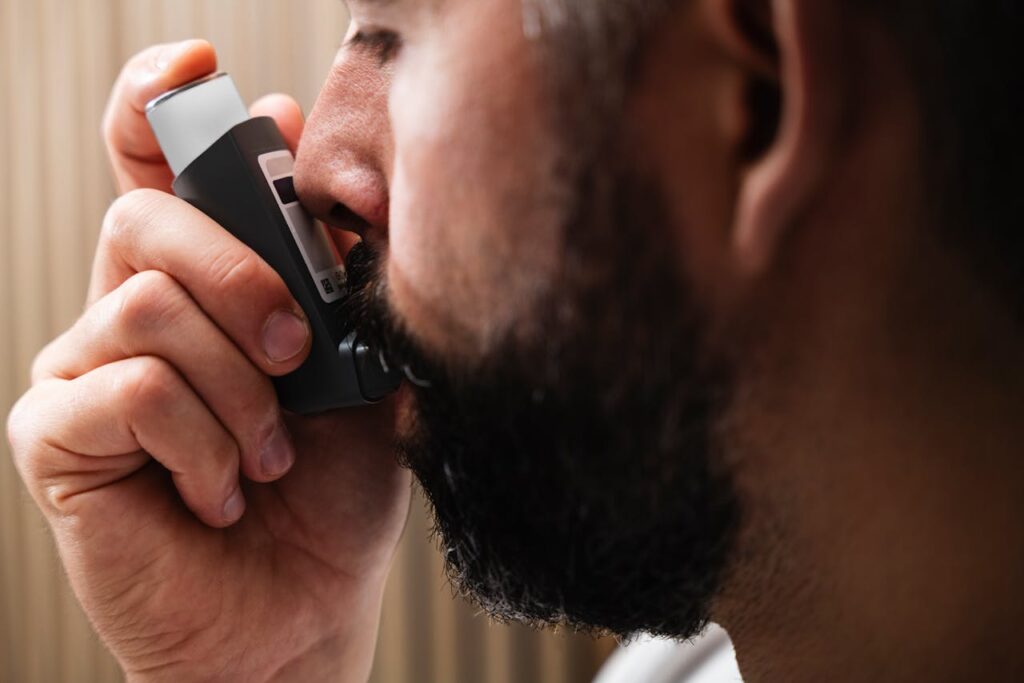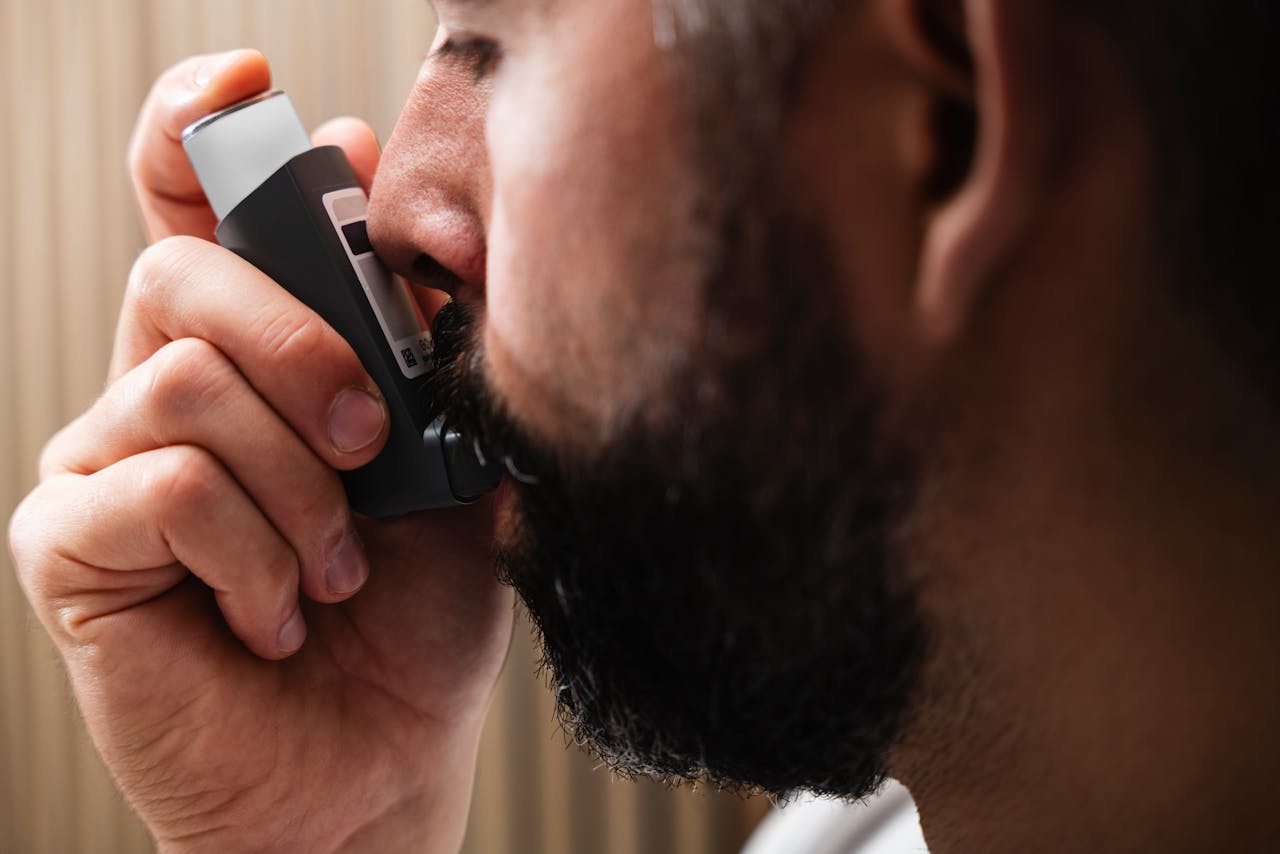Is Bronchitis Contagious? Everything You Need to Know. Its common respiratory illness that millions of people suffer from annually. It leads to the inflammation of the bronchial tubes — the passages that send air to and from your lungs. Unless you’ve been lucky enough to avoid it thus far, then you probably have experienced a cough that has “stuck around” for over five weeks. But the real question is—can you spread bronchitis to somebody else? Not so fast, the answer isn’t as easy as it seems.
In this blog we’re diving in deep into the different types of bronchitis, causes, symptoms, how is it spread and how to prevent it.
Is Bronchitis Contagious? Everything You Need to Know
Types of Bronchitis
In order to find out if bronchitis is contagious, we have to separate the two types:
Acute Bronchitis
This is the more typical type and is often caused by a cold or other respiratory infection. In most cases (and there are many, at least 200 and perhaps more than 1,000, as we can only identify half of them) it lasts for a couple of days to a week or two, and is most often induced by viruses — the same kind that cause the flu and the common cold.
Chronic Bronchitis
A more severe, chronic condition that is one component of chronic obstructive pulmonary disease (COPD). Upon worsening, it becomes a chronic condition with symptoms of a productive cough, that remains present for more than three months in a year, continuously for two years. This isn’t a contagious condition, since it’s typically caused by sustained irritation of the lungs — most often from exposure to smoking damage, air pollution or on-the-job fume exposure.
So, Is Bronchitis Contagious?
Yes and No.
It depends on the type.
Acute bronchitis is commonly contagious as it is usually due to infection with either a virus or bacteria, and sometimes both. You could contract the virus if someone with acute bronchitis coughs or sneezes near you, or if you touch a surface that has been contaminated with the virus and then touch your mouth or nose.
Chronic bronchitis is not transmitted because is not due to an infection pathogen but due to factors (e.g. smoking, pollution, etc.).
How Would I Get Acute Bronchitis? Is Bronchitis Contagious?
If it’s triggered by a virus or bacteria, acute bronchitis can transmit in the same way a cold or flu does:
Airborne droplets: The virus becomes airborne after an infected person sneezes or coughs or talks.
Contact with contaminated surfaces: Touching a surface that is contaminated with the virus and then rubbing your nose or eyes.
Touching something with the virus on it: Door handle, keyboard, shared items.
After infection, symptoms can occur between two and four days later. During this time you may still spread the virus, even if you don’t feel sick yet.
Common Symptoms of Bronchitis
With or without contagion, some of the symptoms of bronchitis include:
Chronic coughing (with or without phlegm)
- Wheezing
- Shortness of breath
- Fatigue
- Slight fever and chills
- Chest discomfort or tightness
Symptoms of acute bronchitis usually go away in 1 to 3 weeks. With chronic bronchitis, the symptoms last a long time and often come and go.
When Is Bronchitis Most Contagious?

Those infected with acute bronchitis are typically most contagious during the first several days of illness when they are running a fever and have an active cough or are sneezing.
Even once the fever recedes, the virus can continue to be active in your body for days. You could still be unknowingly spreading the virus.
Diagnosis and Treatment
In general, physicians diagnose bronchitis by observing the symptoms and performing a physical examination. They may also order:
X-rays of the chest to exclude pneumonia.
Tests of sputum for bacteria or viruses.
Pulmonary function tests to measure how well your lungs are working.
You should see a doctor if:
The cough continues for more than 3 weeks.
You are running a fever that is high or very steady.
You are coughing up blood or thick, greenish-yellow mucus.
You notice that it’s hard to breathe.
Treatment Options
For Acute Bronchitis:
Rest and hydration are key.
Over-the-counter cough medicine (though coughing even helps loosen mucus).
Painkillers such as ibuprofen or acetaminophen.
There is no cure for viral bronchitis, but your doctor can treat bacterial bronchitis with antibiotics.
For Chronic Bronchitis:
Inhalers to open airways.
Steroids that cut inflammation.
There is no specific approved antiviral treatment for the virus, which hit China late last year, but many doctors now use antivirals widely used for HIV. Severe cases are oxygenated.

Rehabilitation of patients with pulmonary disease.
But avoiding triggers including smoking is critical.
How to Avoid Spreading Bronchitis
Whether you’re trying to stave off a case of bronchitis or prevent it from spreading, try these helpful tips:
Wash your hands often with soap and water.
Use hand sanitizer when soap is not available.
Try to keep tabs on sick people.
Cough or sneeze into your elbow or a tissue.
Sanitise frequently touched surfaces often.
When sick, cover your nose and mouth and stay home to protect others from getting sick.
Wear a mask in tight, confined spaces, especially during flu season.
Natural Treatments and Self-Care
You can try these home remedies along with medical treatment:
Loosening mucus Steam inhalation or hot showers can facilitate mucus discharge.
Honey and lukewarm water can help soothe the throat too.
Anti-inflammatory You already know ginger tea is considered an anti-inflammatory!
Gargling saltwater helps to relieve the irritation of throat.
Always consult your doctor before attempting herbal remedies, especially if you have other ailments.

Final Thoughts of Is Bronchitis Contagious? Everything You Need to Know
Image source: Shutterstock Bronchitis is a pesky and exhausting illness that comes alongside having a cold, and dealing with the symptoms, including coughing, can be really frustrating. The good news is that most cases of acute bronchitis are mild and go away on their own with proper rest and care.
Yes, someone with acute bronchitis is infectious, especially early on, however basic hygiene practices can help stop the spread. In contrast, chronic bronchitis is not infectious, but it is a condition that needs ongoing treatment.

